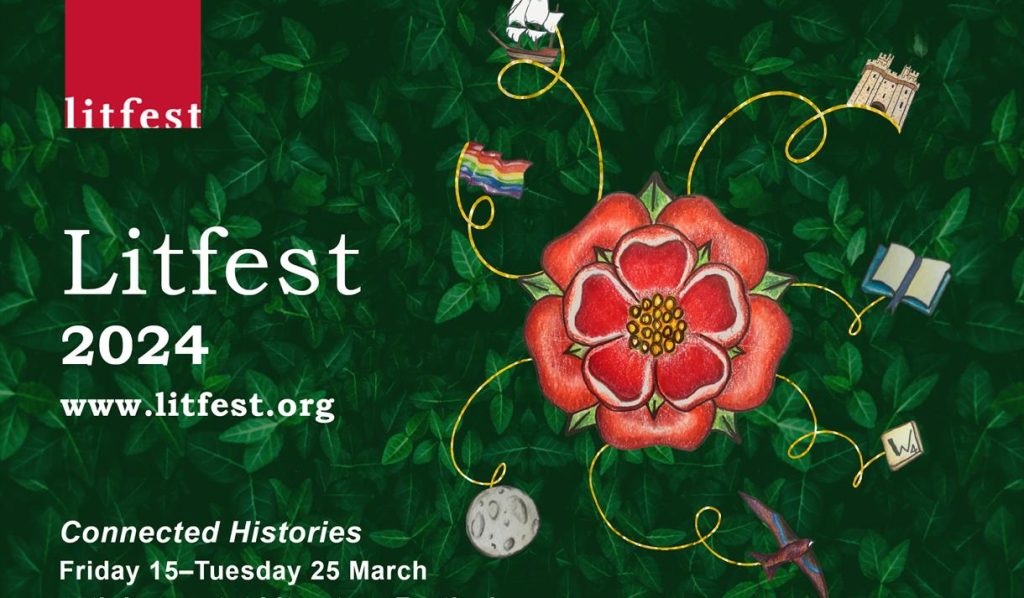
Litfest 2024
These are some Litfest events in Lancaster that are partly connected with the themes of decolonisation that you can consider taking part in!
Saturday 23 March 2024
- Connected Histories Trail Walk 1 – Tickets Here
Time: 11:00 – 13:00
Location: Starting at Lancaster Maritime Museum – Saint George’s Quay, Lancaster LA1 1RB
2. Connected Histories Trail Walk 2 – Tickets Here
Organised by Lancaster Black History Group, this walk will be led by Sunita Abraham, whose work with LBHG has further expanded the trail.
Time: 14:30 – 16:30 GMT
Location: Starting at Lancaster Maritime Museum – Saint George’s Quay, Lancaster LA1 1RB
Sunday 24 March 2024
The Lancaster Slavery Business – Panel Talk. Ticket Here
Time: 15:30 – 16:30 GMT
Location: The Round, The Dukes – Moor Lane, Lancaster LA1 1QE
By 1750, every trading and manufacturing town in England had connections to plantation slavery, and the profits from slavery and colonialism were a major source of the capital that financed the Industrial Revolution that transformed England into a modern capitalist state. In eighteenth-century Lancaster, merchants developed extensive commercial networks in the West Indies and Americas, importing slave-produced plantation goods, such as mahogany and exotic woods, sugar, spices, coffee and raw cotton, and exporting fine furniture, gunpowder, spun cotton and felt. Until recently, local and regional histories have tended to obscure the ways in which the lives of working people within England were impacted/shaped by what historian Catherine Hall terms ‘the slavery business’.
Through a focus on five commodities produced in Lancaster and the surrounding area in the eighteenth and nineteenth centuries, this panel and discussion will bring to light some of the ways in which slavery and colonialism transformed the local economy and the lives of working people. It will include talks by James Fox on felt hats, Alan Rice on cotton, Bella Tyler on slave ships, Gordon Walker and Brontë Crawford on furniture, and Alanah Hill on sugar.